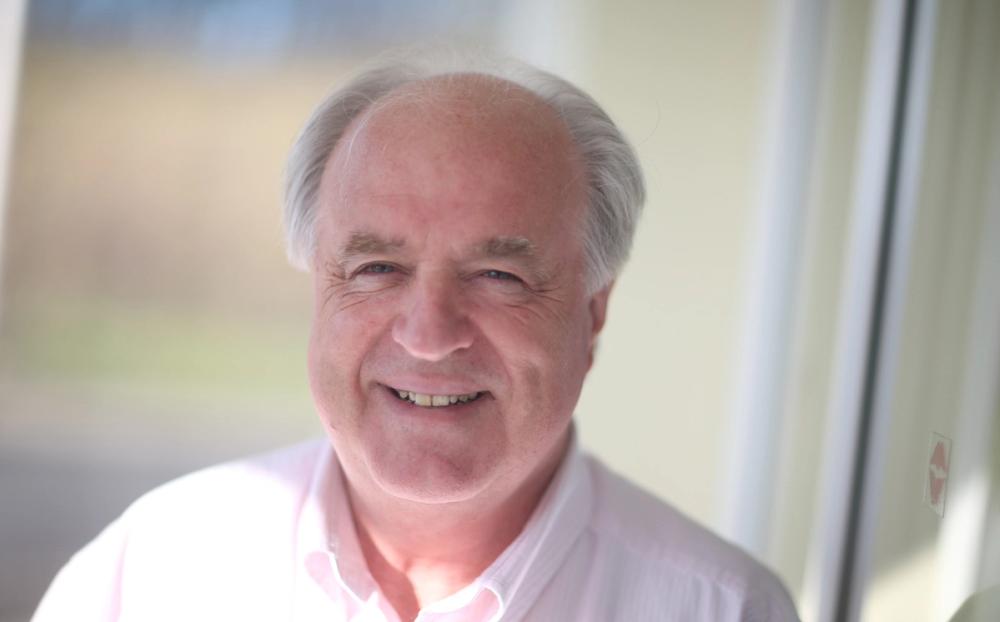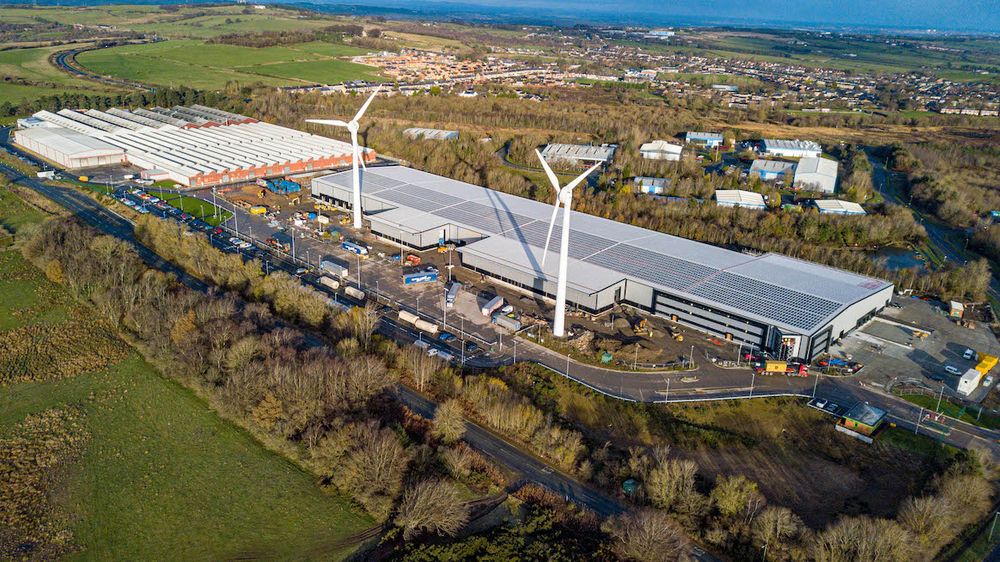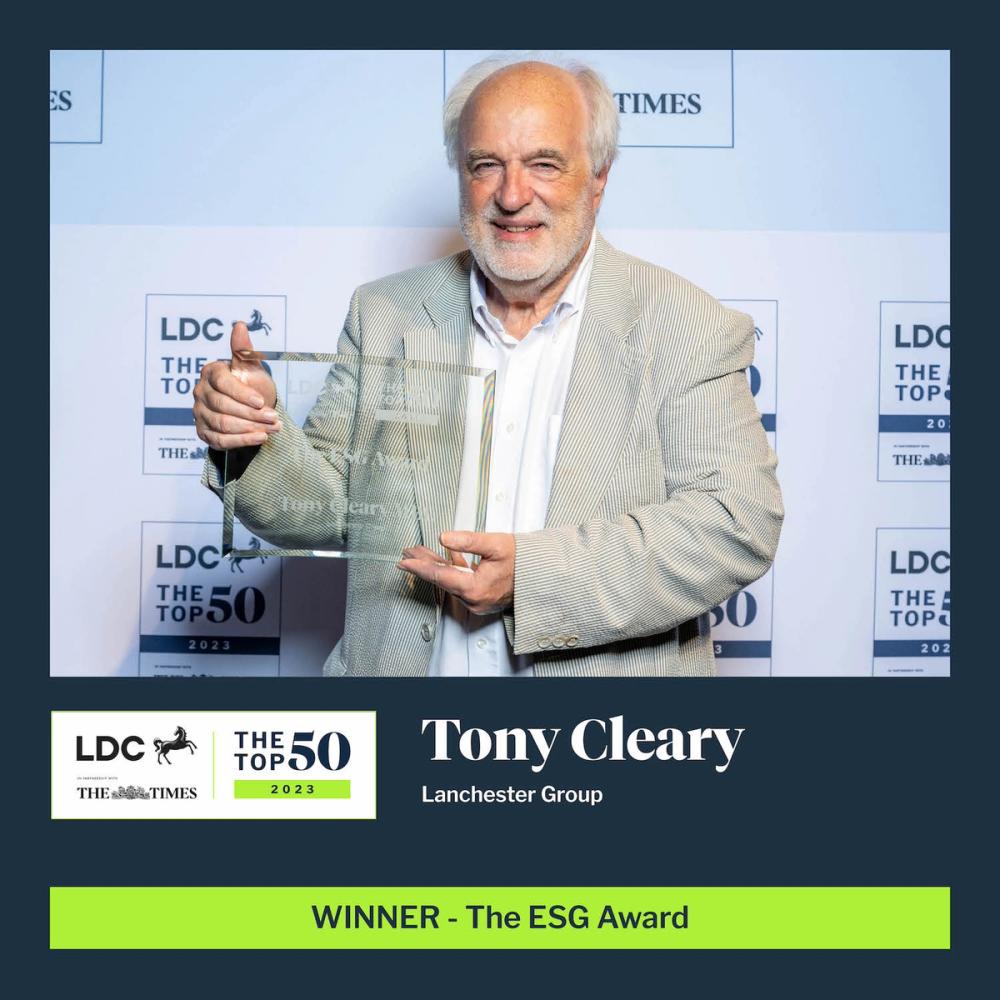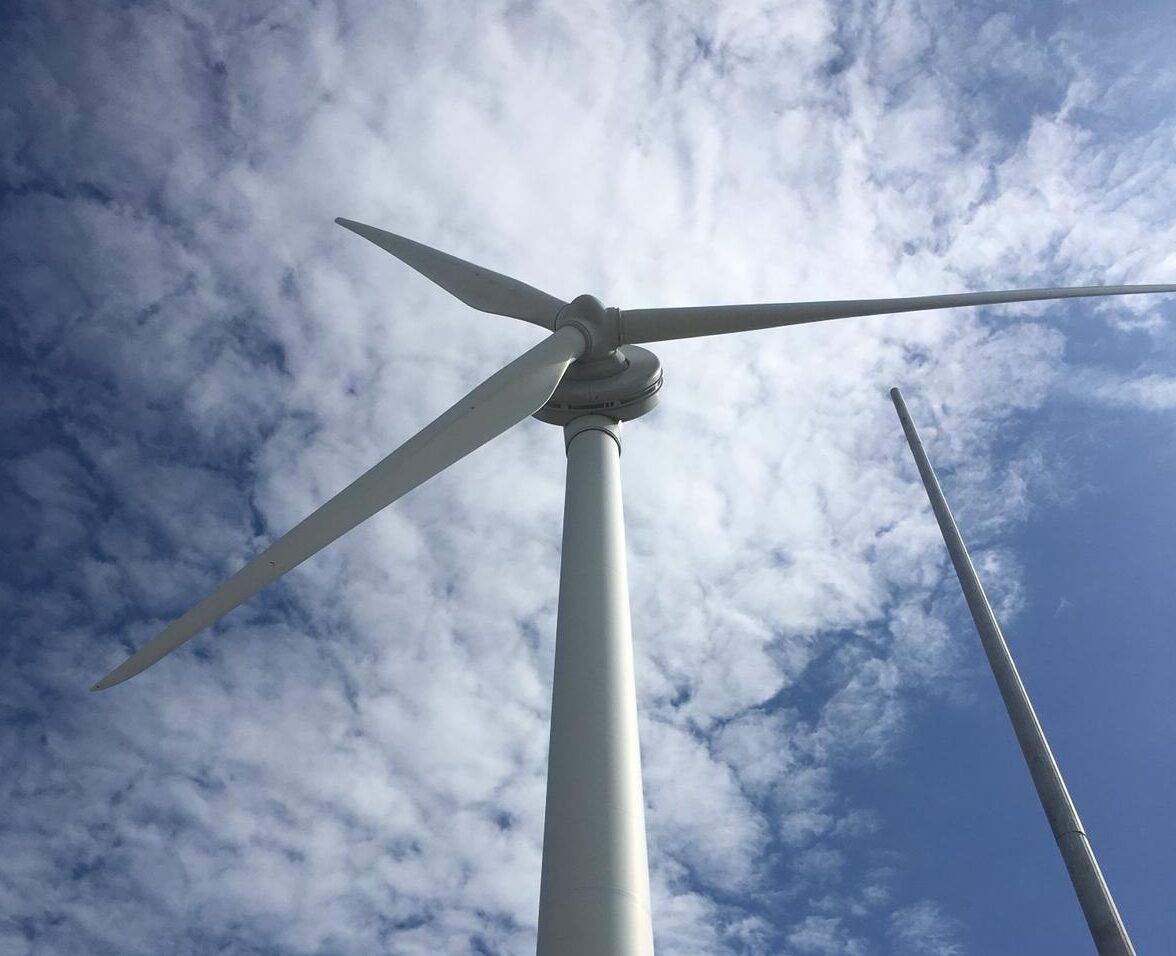The IWSC said its judges were ‘utterly impressed with the scale of sustainability work implemented by this year’s winner … and appreciated the fact that considerable investment was made from the company’s own pocket and not through grants’, while the LDC cited Lanchester Group’s ‘outstanding sustainability credentials’ in giving Cleary his ESG award.

“As a country, and as businesses, we need to grasp the nettle,” Tony Cleary, co-founder Lanchester Group
Congratulations on winning the ‘double’ with two prestigious awards – the Green Wine Initiative Trophy at the IWSC and the ESG Award from the LDC Top 50 Most Ambitious Business Leaders programme – an amazing achievement. How does it feel to have your efforts, and those of your team, recognised in this way?
I think we should all be sharing good practice when it comes to sustainability. It has been a long journey: we started our sustainability programme back in 2011 when we installed our first solar panels (on the roof of Lanchester Wines’ offices), followed by our wind turbines. And we’ve done many weird and wonderful pioneering things since then. Some have been really hard work to get going, like the geothermal heat pumps (using disused coal mines to heat the company’s warehouses).We were right at the forefront. We were pioneers: the first people to make this technology work in the UK and it has not been easy, it was a big risk, and, had we known how big a risk, perhaps we wouldn’t have done it, but we did. I end up being the glory boy, but really I’m representing the team here.To have our efforts rewarded with these wonderful awards is testament to our hard work and all the risks we have taken.
Why have you taken the approach that you have, with sustainability at the heart of the business?
I think that sustainability is the future. We have all seen what’s happened with climate change, the extremes in the weather, and the ‘once in a hundred years’ storms that are becoming all too common. Obviously, with the Ukraine war that nobody really expected, the price of energy has risen dramatically. The only positive, if you can call it that, is that it is making people think about sustainable power. Anyone can put solar panels on their roof (and they should!) but the big problem with sustainable power is that it doesn’t always create the energy when you need it, so battery capacity is a big challenge. Our business uses a lot of power, particularly the bottling lines, but we’ve saved thousands of tons of carbon through using our own renewable energy. We’ve got sustainability at the core of the business and, not only is this good for the planet, but we believe this is going to future-proof it too.
You make decisions that go above and beyond legislation and common practise – something that you’re being praised for with these awards – why do you feel the need to go that bit further?
Adam (Black – former Director of Energy at Lanchester Wines) was the driver, but I jumped on board because it made perfect sense. We’re a large family business, 100% family owned, so we’re in a unique position to make decisions far quicker than the corporate sector. We have many and varied sustainability projects, be they wind, solar, geothermal, air source, EV chargers, with more to come. We want to be a beacon for other businesses to follow because most other businesses don’t necessarily understand how it all operates. They think the cost is too high, but here’s the thing: the return on investment on sustainability can actually be very good.What’s more, the ROI is much higher now than it was two years ago, thanks to those ever increasing energy prices. As for ‘above and beyond’: Common legislation on sustainability and renewable energy is best described as ‘just enough’, but the reality is that it’s not good enough. As a country, and as businesses, we need to grasp the nettle. Caroline (Cleary, a director of Lanchester Group) went to Cop26 and when she mentioned Lanchester Wines, everyone knew who we were and what we have done. People need a beacon, someone has to show the way, proving the concept works, then people can follow. We’re happy to share good practice, to help people on their sustainability journey.

The most sustainable large building on the planet? Greencroft Two, December 2022
You mentioned ROI. Most of the decisions you make require great investment and a degree of risk. How do you balance that risk when you make these decisions?
You’re right! A great example of this is our geothermal heat pumps: to be honest, we have kissed a number of frogs and it has taken us five years to find the prince. We have had many setbacks and a lot of lessons have been learned along the way. We’re pioneers here and we felt that it was important to share our journey with others because, in the end, our planet is the most important thing here and we need to help where we can.We’ve made mistakes and we have shown other businesses what not to do, saving them money. For example, we’ve helped one of our local authorities (Gateshead Council) to save millions of pounds in their investment in geothermal energy.
Whereas heat pumps was cutting edge stuff, and it has been really hard work, wind power was a bit different: I was actually recovering from a hip operation, reading a piece about wind turbines in the Sunday Times and I thought, ’we could do this’. The significant investment was much easier to justify because we’re based high on the windy hills of County Durham. So, our wind speeds are excellent and we always knew our turbines would produce plenty of power. Turbines had been done before, so we could seek advice too. I rang another local family business, who already had turbines in place, and they said ‘just do it’, so we did.
How do we balance the risk? We have a strong group of businesses behind us. And we need a lot of energy to power Greencroft Bottling and to keep Lanchester Wines’ warehouses ambient, as opposed to offices, which don’t need as much. Having our own power generation means we can use it within our own operation, giving us a much better return.
You say the heat pumps project was hard work. Tell us more?
So, initially we met with an Icelandic business that was using geothermal energy. Adam (Black) met them at a Cop conference around seven years ago. Iceland has lots of geothermal energy, so they knew about this tech and they thought our coal mines had lots of warm energy, but – alas – their expertise was relevant to Iceland, but not to the former coal fields of Gateshead, where our warehouses sit. The two places are very different geothermal beasts, it turns out. We’ve now found water at 19ᵒc, where originally we had 13ᵒc, because we’ve gone deeper. We can take 11ᵒc out of the 19ᵒc water, but only 4ᵒc out of the 13ᵒc water, so we’re now more efficient. Our Abbotsford Road warehouse is 220,000 square feet and we obviously need to keep the wine at an ambient temperature, so that’s how we use the heat below us.However, the longer we’ve done it, the more we’ve realised that we can make better use of this heat, the efficiency is fabulous (1kW of electric can create 4kW of heat), so we’re now on the lookout for a partner who can make even better use of it.

It’s an exciting time for you, because these awards have come before your latest investment, Greencroft Two, is even complete. Tell us what’s coming next with that particular project?
Greencroft Two is, in my humble opinion, the most sustainable large building on the planet. I don’t say this lightly, but, rather, because there is three million Watts of solar integrated into the roof. We have also lowered the north-facing part of the roof to a 4% gradient so it makes sense to add solar here too. We met with the chairman and main board of Kingspan Insulation (provider of the roofing panels) and they said they had ‘wonderful’ new panels with a ‘U value’ of 0.12 (U value is the measure of the insulating capacity of a panel: the lower the U value, the better the insulation). The law states non-domestic new builds have a U value of 0.14 on roof and 0.22 on walls, but I wanted a U value of 0.12 on both the roof and walls, some told me that was overkill, but it’s what I wanted. It is the first time these innovative solar panels have been used commercially , a special production. It has been a really interesting journey to get power from this wonderful roof. We have not put any heating in Greencroft Two because we believe it is so well insulated that the heat from the machines will be enough to warm the building. Having said that, we’ve not yet started production – so you could say this is the pioneering approach again.
What else is next?
We have an excess of electricity on the site: we are, in effect, a mini power station producing around 7.5million kilowatt hours of 100% green electricity every year, exclusively from solar and wind.. And, we’re also going to use this power to charge cars – in addition to our existing 15 electric car charges, we’re adding two ultra-fast chargers outside for the public to use, so we share the power we generate with our community.
Battery storage is the next frontier because, by its very nature, sustainable energy is only produced when the wind blows and the sun shines, which isn’t necessarily when you need it, so you’ve got to be able to store the power: we’re looking at storage which incorporates weather forecasting, giving us a 5% tolerance for how much power each of our systems will use or need. What’s more, we can also potentially help support the national grid at times of high consumption.
You have won a big personal plaudit here – you and Veronica began this business in the front room – did you ever imagine it would lead to this?
This answer is no. It has been a long journey: Veronica and I started Lanchester Wines in 1980 so I’ve got to be one of the oldest full-time employees in the wine trade. My great ambition was to employ as many locals as we could because, believe me, it was a jobs desert here back in 1980, after the Consett Steel works had just closed. I’ve always worked on the idea that you need to employ people cleverer than you, then let them flourish, don’t micro manage them. Our people have helped us to grow the business to where it is today. It’s not just about Veronica and me: when I say we’re a family business, I don’t just mean the Cleary family, but everyone who works here.
What advice would you give anyone wishing to be bolder with their business when it comes to sustainability?
I would say, just do it. This is the advice I had on our wind turbines and it’s the advice I pass on. There’s no ‘one size fits all’ approach to sustainability. We happen to be high on a windy hill, hence wind turbines are wonderful. Obviously you can’t do that on an office in London, but you can install solar. What’s more, I truly believe the future of sustainability is actually beneath us: a huge untapped heating source the further you go, there’s all this geothermal energy that we need to make use of with the likes of ground source heat pumps. You just need to be passionate and prepared to have a go. What’s good for the planet is also good for business and we’re in this for the long haul because being carbon neutral is just the beginning.
The Lanchester Group is a commercial partner of The Buyer. To discover more about Lanchester Wines click here and to discover more about Greencroft Bottling click here.






























